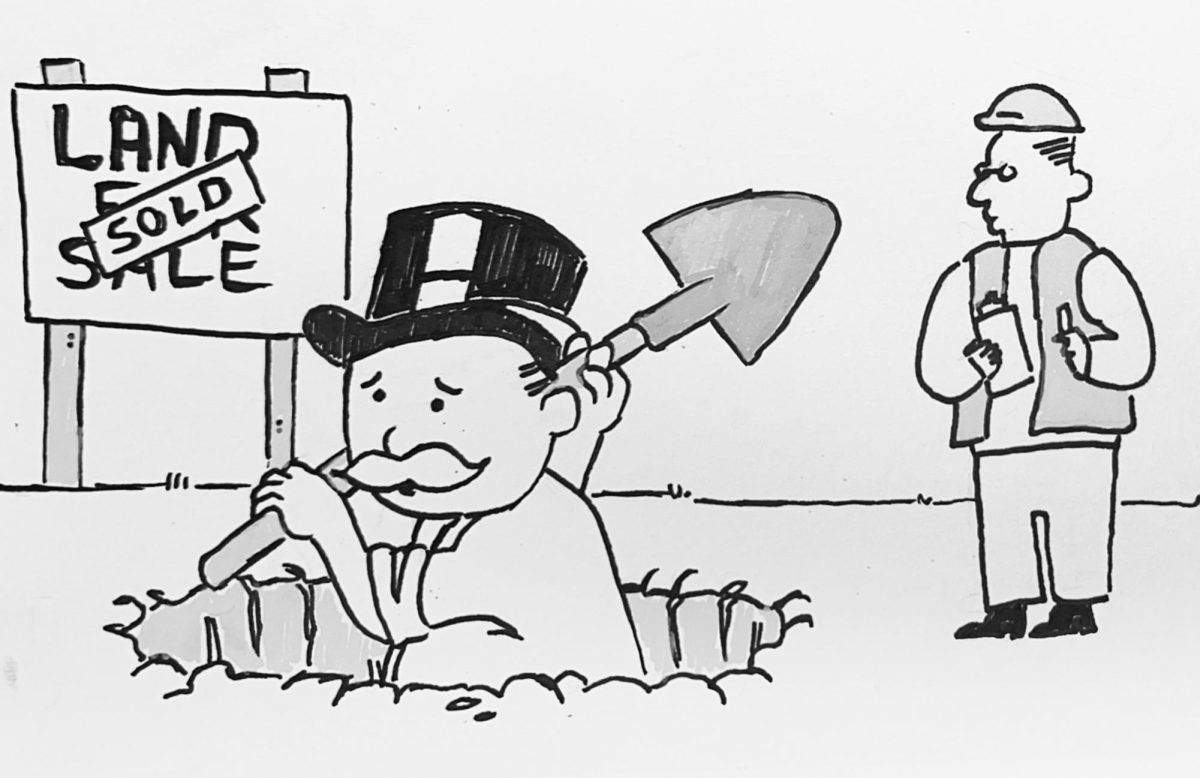
When I think “rock star,” I think of moments such as Paul Simonon smashing his bass on the cover of “London Calling,” John Lennon’s bed-in with Yoko Ono or Bob Dylan’s responding “play it [expletive] loud” to fans booing him for going electric. What unites these moments are the expressions of opposition to the status quo, as well as the artists’ belief that their actions could influence the world around them.
Rarely does a certain bespectacled man wearing a black turtleneck and jeans, who made software for a living, come to mind. The man I speak of is Steve Jobs, who died a premature death on Oct. 5. Steve Jobs was a rock star in his own right. Jobs possessed his own unique simplistic style in his works, his own attitude which opposed the status quo, and, like many musicians, he believed he could change the world with his ideas.
Surprisingly enough, this computer geek, like many rock stars of the 1960s, experimented with LSD. In John Markhoff’s book “What the Dormouse Said,” Jobs called his trips “one of the two or three most important things [he had] done in [his] life.” Jobs’ questioning of authority and expressing an interest in counterculture differentiates him from many of the pioneers of technology. How many CEOs do you know who have dropped acid?
Also, Jobs, like many rock stars, dropped out of college. He studied for only one semester at Reed College and spent the rest of his time there sleeping on his friends’ floors and getting free meals at the local Hare Krishna temple. Later on, he traveled to India and stayed for seven months. He may not have come back like the Beatles: sitar in hand, ready to produce songs like “Tomorrow Never Knows” or “Norwegian Wood”: however, the effect of the vacation would influence the rest of his life. Jobs discovered the simplicity of Zen Buddhism in India. His biographer, Walter Isaacson, said of the trip in his book “Steve Jobs,” “The simplicities of Zen Buddhism really informed his design sense. That notion that simplicity is the ultimate sophistication.” Jobs wanted his designs to be universally accessible, and simplicity was the vehicle that allowed him to achieve his goal.
After his trip to India, Jobs and Steve Wozniak formed Apple Computer, Inc., in Jobs’ parents’ garage. A real garage band. With a little scratch from “producer” Mike Markkula, Jr., Jobs and Wozniak went on to release the Macintosh in 1984, the first number one of its genre (personal computer with graphical user interphase). According to ACTS International, Jobs lured John Sculley away from Pepsi-Cola to be Apple’s CEO, saying, “Do you want to sell sugar water for the rest of your life, or do you want to come with me and change the world?” Jobs was kicked out of the band, however, in 1985 over a power struggle between him and Sculley.
Jobs, with his skill set in his fingers, went out to form several “side projects,” including NeXT and Pixar. Pixar created chart-topping hits like “Toy Story,” for which Jobs was a producer. Jobs finally had his “comeback” when Apple bought NeXT in 1996, and Jobs again became band leader in 1997. He went on to release solid gold hits that would change the world, like iTunes, the iPod and the iPhone. Throughout all of this, he cared nothing for showing off his wealth, unlike that sellout Bill Gates (Rivers Cuomo, anyone?). In fact, his pay was only one dollar a year for the years that he was CEO, excluding his shares of course.
Interestingly enough, Jobs once admitted in a “60 Minutes” interview that his business model was the Beatles. Even Jobs’ simplistic technical style is reminiscent of George Harrison’s guitar playing. Compare the simple layout of Apple products to the guitar solo at the end of “Come Together” by the Beatles.
Until the end of his life, Jobs questioned authority, never taking anything for granted from “the man.” Initially, Jobs tried Eastern methods to treat the pancreatic cancer he was diagnosed with in 2003 rather than turning to chemotherapy.
This is not to say Jobs was a perfect role model. He was known at Apple in the ’80s for his drawn-out meetings and temperamental attitude. On the other hand, Jobs, like all musicians, worked with his brain and his fingers all his life to change the world. He created a revolutionary style of simplicity for his computers. When people first get their hands on an iPhone, an iPod or even an iMac, it is a wonderful new feeling. Recognizing the technical aspects of the iPod may not be as awe-inspiring as when one first starts listening to “Exile on Main Street” by the Rolling Stones or “Let It Be” by the Replacements on the actual thing, but Jobs was there, and he was part of it. He allowed the world of music to expand exponentially by creating these products, and he did it with his simplistic, yet world-changing, ideas.
Sources: NPR, Google Books, The Economic Times, CNET TV









Tim • Nov 4, 2011 at 11:30 pm
Surely the best musicians (especially the reference of The Clash) ask you to change your own world and not seek them to do it for you?
kyleseasly • Nov 5, 2011 at 2:15 am
A good point, but wouldn’t you agree that Steve Jobs made tools that allowed you to change to world?